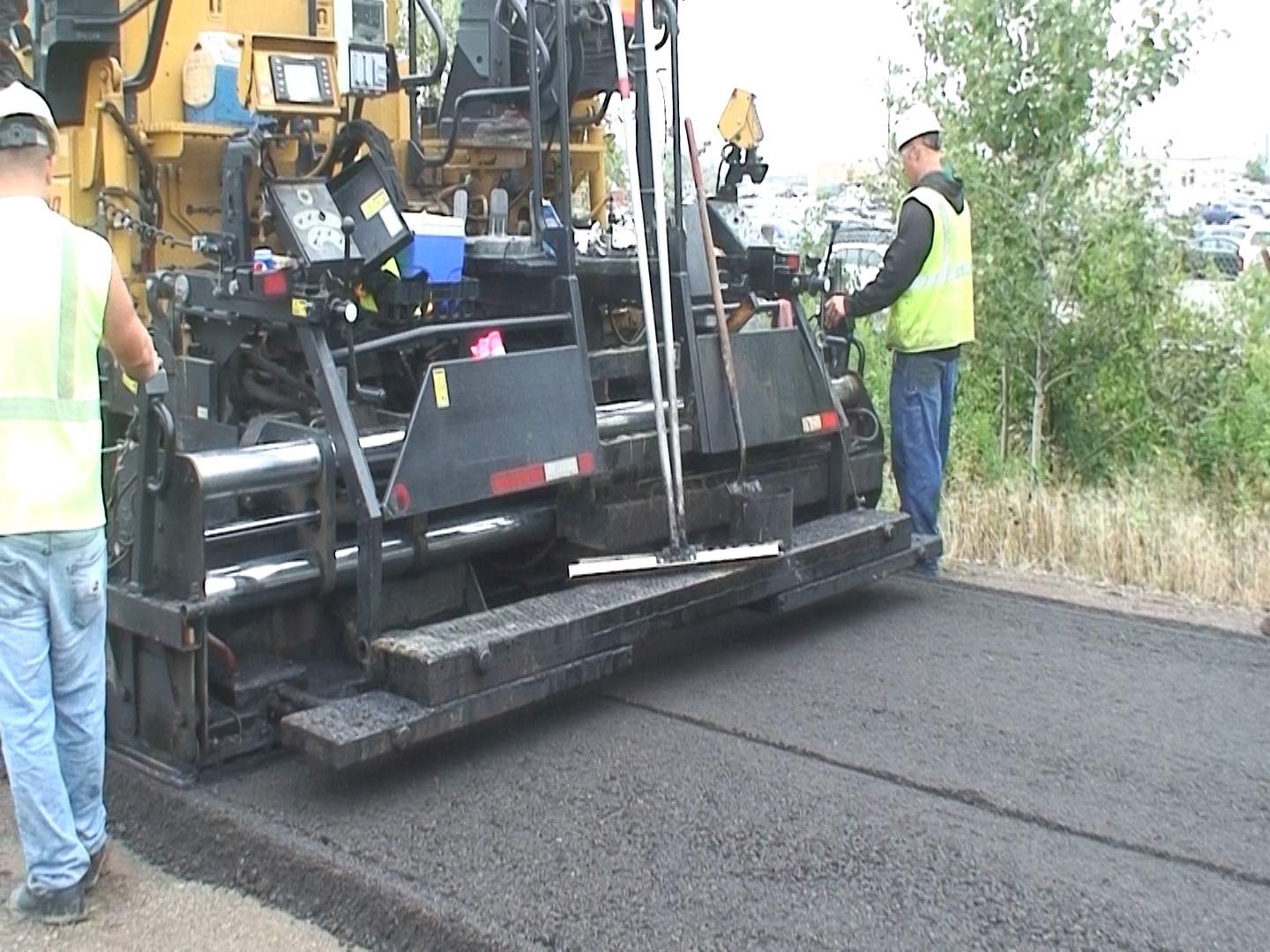MnROAD | NRRA | Structure & Teams | Flexible Team
Cold Central Plant Recycling (CCPR)
Status: Complete
Project Start Date: February 6, 2018
Project End Date: December 31, 2020
Project summary
State and local agencies are increasingly using Recycled Asphalt Pavement (RAP) material to construct structural layers of asphalt pavements for low-volume roadways. These layers use no virgin aggregate (or a small fractions, if any). These pavements are typically constructed using Cold In-place Recycling (CIR) methods, and the top 3-4 inches of the existing pavement is milled, mixed with new asphalt binder, then directly paved and compacted. However, an alternative method using stockpiled RAP, instead of in-place RAP, is referred to as Cold Central Plant Recycling (CCPR). 
The research objectives are to explore the performance of Minnesota Road and Research Project (MnROAD) test cells constructed using two different CCPR methods (foam and emulsion) with 2 different asphalt based surfaces (Hot Mix Asphalt (HMA) overlay and double chip seal). The project will also include analysis of laboratory and field tests to characterize the pavement (and supporting tests), studies of construction practices and costs associated with CCPR, including a survey, and the production of task memos describing task work on CCPR construction, costs, and performance.
The research products will be a final report and technical briefs that provide:
- Documentation of the MnROAD experience with CCPR.
- Analysis of the performance of CCPR pavements and materials.
- Details on the CCPR construction state-of-the-practice.
- Discussion of agency concerns in developing a CCPR specification.
It is hoped that the research products will help National Road Research Alliance (NRRA) member agencies develop their own CCPR specification.
Project tasks
Original Need Statement: Cold Central Plant Recycling (CCPR) (DOC) (LRRB Problem Statement, 6/14/2017)
Task 1: Literature review; develop survey
Task 2: Evaluate performance testing for CCPR specimens
Task 3: Develop state-of-practice summary for CCPR construction and design
Task 4: Cost evaluation and comparison
Task 5: Laboratory and field testing of CCPR
Task 6: Analysis of test results
Task 7: Collect and summarize survey of state/local engineers: develop spec recommendations
Task 8: Compile report, technical advisory panel review, and revisions
Task 9: Editorial review and publication of final report
Project team
Principal Investigator: David Rettner, American Engineering Testing
Technical Liaison: Michael Vrtis, MnDOT
Project Technical Advisory Panel (TAP)
- Dave Van Deusen, MnDOT
- Randy West, NCAT
- Andy Cascione, Flint Hills
- Curt Turgeon, MnDOT
- Ed Johnson, MnDOT
- Zhanping You, MTU
- Barry Paye, WisDOT
- Terry Beaudry, MnDOT
Related materials
- Video showing construction of the cells, 9/4/2017
